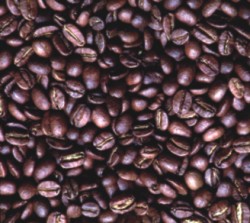| Health

Caffeine is a drug, popularly consumed in coffee, tea, soft drinks and, in smaller doses, chocolate. While we seem to have a love affair with these products, there's been quite a bit of confusion and even controversy surrounding caffeine lately. Is it good or bad for us? Here's a brief tutorial on caffeine, and some surprising answers to these questions.
 Effects on the Body: Effects on the Body:
* Hormones -- You can feel the effects of caffeine in your system within a few minutes of ingesting it, and it stays on your system for many hour. While in your body, caffeine affects the following hormones:
* Adenosine -- Can inhibit absorption of adenosine, which calms the body, which can make you feel alert in the short run, but can cause sleep problems later.
* Adrenaline- Caffeine injects adrenaline into your system, giving you a temporary boost, but possibly making you fatigued and depressed later. If you take more caffeine to counteract these effects, you end up spending the day in an agitated state, and might find yourself jumpy and edgy by night.
* Cortisol -- Can increase the body's levels of cortisol, the “stress hormone”, which can lead to other health consequences ranging from weight gain and moodiness to heart disease and diabetes.
* Dopamine -- Caffeine increases dopamine levels in your system, acting in a way similar to amphetamines, which can make you feel good after taking it, but after it wears off you can feel 'low'. It can also lead to a physical dependence because of dopamine manipulation.
 These changes caffeine makes in your physiology can have both positive and negative consequences: These changes caffeine makes in your physiology can have both positive and negative consequences:
* Sleep Caffeine can affect your sleep by keeping you awake longer, thereby shortening the amount of sleep you get, and giving you less time in the restorative stages of sleep, which takes a toll on your level of alertness the next day and overall health.
Interestingly, though, caffeine doesn't affect the stages of sleep the way other stimulants do, so it's a better choice than speed or other 'uppers' to use if you need to stay awake.
* Weight Many experts believe that increased levels of cortisol lead to stronger cravings for fat and carbohydrates, and cause the body to store fat in the abdomen. (Abdominal fat carries with it greater health risks than other types of fat.) Also, if increased cortisol levels lead to stronger cravings for caffeine-laden foods, the body goes into a cycle that leads only to worse health.
The good news, though, is that caffeine can speed up metabolism. Also, it can help the body break down fat about 30% more efficiently if consumed prior to exercise. (You must be exercising to get this benefit, though.) Additionally, caffeine can keep blood sugar levels elevated, leaving you feeling less hungry.
* Exercise If caffeine elevates levels of cortisol and other hormones for a temporary boost, after caffeine wears off, the body can feel fatigued and feelings of mild to moderate depression can set in. This can make physical activity more difficult.
On the positive side, caffeine has been found to enhance physical performance and endurance if it isn't overused. This, combined with its effect of fat burning during exercise, can actually enhance workouts and enable you to get in better shape if you take it at the right time.
Caffeine and Stress
Because caffeine and stress can both elevate cortisol levels, high amounts of caffeine (or stress) can lead to the negative health effects associated with prolonged elevated levels of cortisol (which you can read about here). If you ingest high levels of caffeine, you may feel your mood soar and plummet, leaving you craving more caffeine to make it soar again, causing you to lose sleep, suffer health consequences and, of course, feel more stress. However, small to moderate amounts of caffeine can lift your mood and give you a boost.
The Verdict on Caffeine
With potential negative and positive health consequences, caffeine can be your friend, but in controlled doses. Here's what you should remember about caffeine:
* Don't Take Too Much. Because of the health risks (above) associated with higher levels of caffeine, as well as the risk of physical dependence that can come with four cups of coffee or more each day, it's wise to limit your caffeine intake. (Withdrawal symptoms can include cravings, headache, fatigue and muscle pain.)
* No Caffeine After 2pm. Because sleep is important to proper physical functioning, and caffeine can stay in your system for 8 hours or longer, you should cut off or limit your caffeine intake to the first part of the day to ensure that your sleep isn't disrupted.
* Enjoy Caffeine With Physical Activity. Caffeine is best ingested before exercisethat way your performance is enhanced and the stress-management benefits of exercise can keep you healthy and feeling less stressed throughout the day.
Top 10 Caffeine-Related Health Problems
The information below is taken from the book Caffeine Blues.
1. Cardiovascular Problems
Caffeine increases your heart rate, elevates your blood pressure, and can contribute to the development of heart disease. Both decaf and regular coffee increase your cholesterol and homocysteine, the biochemical that science has linked to increased risk for heart attack. Caffeine is also linked to coronary vasospasms, the cause for 20% of all fatal heart attacks which kill otherwise perfectly healthy people.
2. Stress
Caffeine stimulates the excretion of stress hormones which can produce increased levels of anxiety, irritability, muscular tension and pain, indigestion, insomnia, and decreased immunity. Increased levels of stress from caffeine can keep you from being able to make healthy responses to the normal daily stress everyone is subjected to in their lives.
3. Emotional Disturbances
Anxiety and irritability are hallmark mood disturbances associated with caffeine consumption, but equally important is depression and attention disorders. Depression may occur as part of the let down after the stimulant effects of caffeine wears off. It may also appear during the recovery period after quitting caffeine while the brain's chemistry is readjusted. Caffeine rather than increasing mental activity actually decreases blood flow to the brain by as much as 30% and negatively effects memory and mental performance.
4. Blood Sugar Swings
Diabetics and hypoglycemics should avoid caffeine because it stimulates a temporary surge in blood sugar which is then followed by an overproduction of insulin that causes a blood sugar crash within hours. If you're trying to lose weight, this roller coaster will actually cause weight gain since insulin's message to the body is to store excess sugar as fat.
5. Gastrointestinal Problems
Many people experience a burning sensation in their stomach after drinking coffee because coffee increases the secretion of hydrochloric acid leading to an increased risk for ulcers. Coffee, including decaf, reduces the pressure on the valve between the esophagus and the stomach so that the highly acidic contents of the stomach pass up to the esophagus leading to heartburn and gastro-esophageal reflux disease. With America's high consumption of coffee, its no wonder the best selling over-the-counter drugs are the so-called antacids.
6. Nutritional Deficiencies
Caffeine inhibits the absorption of some nutrients and causes the urinary excretion of calcium, magnesium, potassium, iron and trace minerals, all essential elements necessary for good health.
7. Male Health Problems
Dr. Milton Krisiloff, M.D. has found that in the majority of cases, men can significantly reduce their risk for urinary and prostate problems by making dietary changes which include eliminating coffee and caffeine.
8. Female Health Problems
Fibrocystic breast disease, PMS, osteoporosis, infertility problems, miscarriage, low birth weight infants, and menopausal problems such as hot flashes are all exacerbated by caffeine consumption. Women on birth control pills are particularly at risk since they have a decreased ability to detoxify caffeine.
9. Adrenal Exhaustion
Caffeine consumption leads to eventual adrenal exhaustion which can leave you vulnerable to a variety of health disorders related to inflammation, autoimmunity, and fatigue.
10. Aging
Many people find in their forties that they can no longer tolerate the same level of caffeine consumption as they could in their twenties and thirties. The production of DHEA, melatonin, and other vital hormones start to decline and caffeine speeds up that downhill drop. Caffeine dehydrates the body and contributes to the aging of the skin and kidneys. It has been shown to inhibit DNA repair and slow the ability of the liver to detoxify foreign toxins.
Copyright (R) thedailystar.net 2007 |
